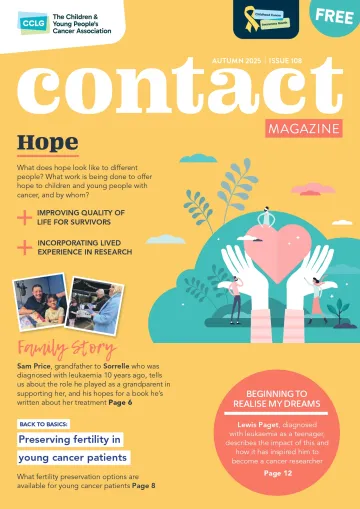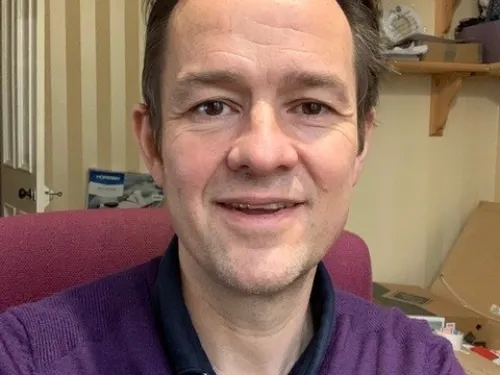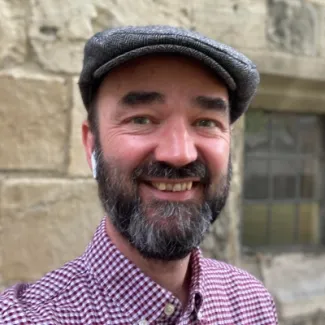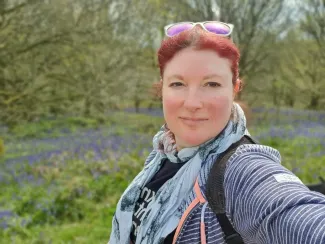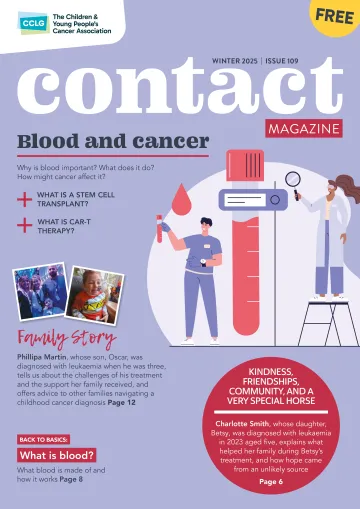My name’s Lewis and I’m just an ordinary young man with an extraordinary story to tell. Mine and my family’s lives changed for ever a week after I turned 17, when I was diagnosed with acute lymphoblastic leukaemia and acute myeloid leukaemia simultaneously. My story really starts on my birthday, when I woke up with a butterfly rash on my face. Before I knew it, I was being dragged down to the GP by Mum for further investigations, which was hardly an ideal start to my celebrations. Nevertheless, the GP confirmed Mum’s suspicions that it was dermatitis, and we all assumed that would be that.
However, as it turned out, my body had other ideas…
Over the next few days, the rash persisted, and I started to deteriorate. I stopped eating and drinking, and felt nauseous and dehydrated. Eventually, after multiple days without food and little fluid intake, I was admitted to my local hospital and less than 24 hours later I was diagnosed with a life-threatening disease. It's worth remembering at this point that I was a relatively healthy teenager with no previous medical complications, so how on earth had I found myself in this position?
The only way I can begin to describe what receiving a cancer diagnosis is like, at any age, let alone as a teenager, is by imagining your family being represented as a jigsaw, with that jigsaw being thrown up in the air and chaos then ensuing. Heartbreaking, terrifying, earthshattering, even. My family and I had suddenly been transported into a world of unknowns and the only thing I knew for certain, was that life was never going to be the same again.
So many challenges lay ahead, with so much to process and no time to do so, as was dictated by the nature of the beast we faced. While in hospital, we were constantly bombarded with information and decisions to make, by countless medical professionals wanting to conduct tests or procedures. It was a confusing time and quite overwhelming. Then there were the treatments themselves: chemotherapy, radiotherapy, a bone marrow transplant, and a period in intensive care mixed in for good measure!
The impact of my cancer
As you can probably imagine, all of this had a devastating impact on my physical, psychological and emotional wellbeing. Physically, I was absolutely battered for months on end. Equally, my mental wellbeing took a monumental hit. The psychological side of being in hospital and the associated isolation took a huge toll, not to mention the processing of everything in my recovery, which was another minefield to navigate.
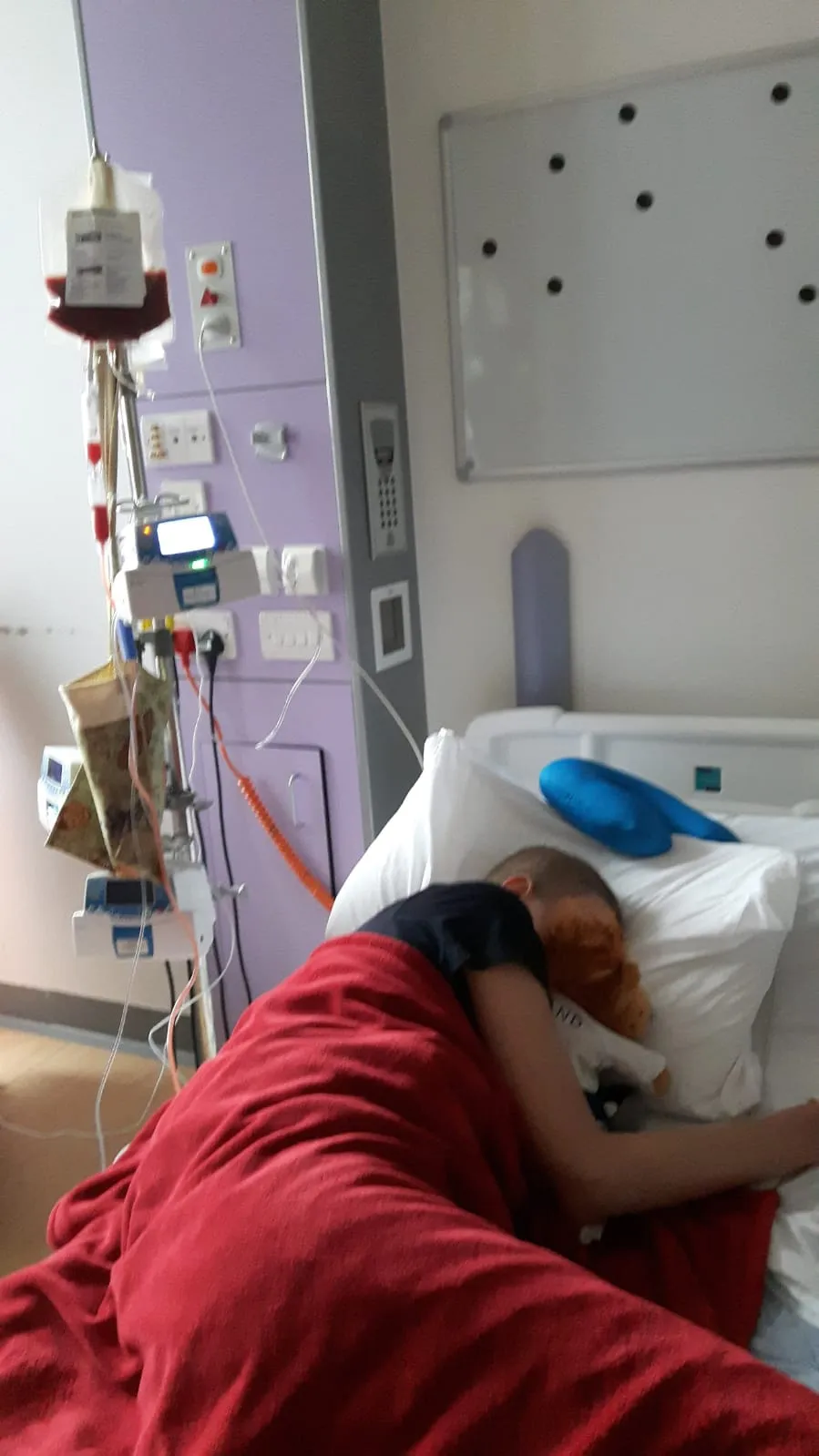
Lewis in hospital
I don’t mind admitting that I ended up in some very dark places. Honestly, I have no idea how I managed to overcome these challenges, but having the most incredible support network anyone could ever ask for most certainly helped.
My experiences have driven my career choices to date as I aspire to work in cancer research labs, with my ultimate dream to find a cure.
Nurses, consultants, social workers, counsellors, other health professionals, friends, and, of course, my family, headed up by my truly remarkable mother, all played a huge part. How my mum managed to maximise her time with me, conducting an ever-present vigil at my bedside, while also singlehandedly parenting my two brothers and coping with a full-time job, is barely fathomable. She was, and still is, my ultimate inspiration and I’ll never be able to truly express my gratitude as there aren’t enough words in the English language.
Equally, right from the outset, we always had a sense of hope instilled within us and I simply can’t overstate the importance this had. Arguably, it was this, that even in the darkest of moments, enabled my family and I to pull through. This was enhanced further by having the unique opportunity to witness first-hand, just how far fellow human beings were prepared to go to save my life. I’ve had the privilege of experiencing just how sacred human life is and subsequently, the very best aspects of humanity.
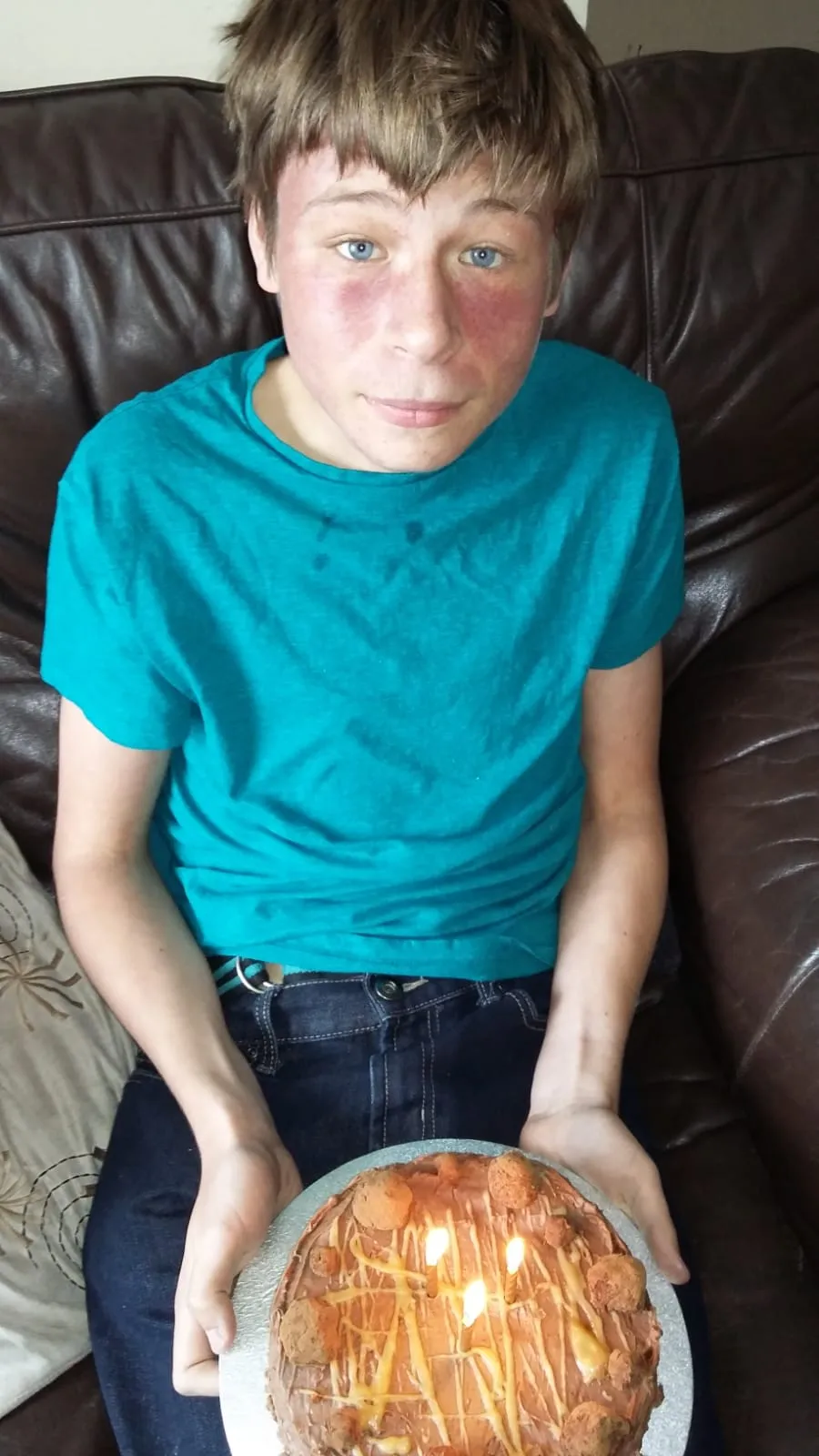
Lewis on his 17th birthday, the day he first showed signs of cancer
How cancer and its treatment has influenced my life
My experiences have driven my career choices to date as I aspire to work in cancer research labs, with my ultimate dream being to find a cure. Cancer took so much from me, and I’m fuelled by this injustice as I relentlessly strive to right those wrongs.
My determination has been unwavering, working tirelessly through two sets of A-levels and two separate degrees, in order to make my dreams a reality. All of this is in the hope that I can change the lives of future generations of cancer patients for the better.
Similarly, in recent years, I’ve become a passionate advocate and even an ambassador for young cancer patients through my volunteering for multiple cancer charities including CCLG, Young Lives vs Cancer, Anthony Nolan, and many more. I have enthusiastically raised awareness of the incredible work that each of these charities do, as well as of cancer in young people more generally, as this is terribly lacking in wider society. Additionally, I’ve shared my lived experiences in the hope of influencing change, so that future generations of young cancer patients don’t have to endure as much adversity.
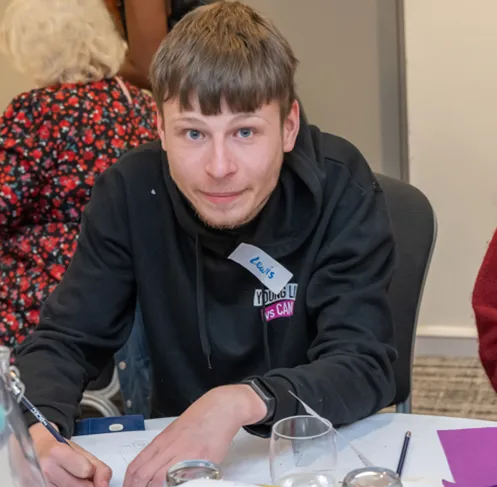
Lewis volunteering
What life looks like now
Life’s far simpler for me now. I’m nearly nine years post-transplant with no recurrence of my cancer. Apart from the odd episode of chronic fatigue, which is wholly expected given my intense treatment, I’m able to live a relatively normal life with few complications. This is something which I’m immensely grateful for and I’m regularly reminded of just how lucky I am. Furthermore, I’m beginning to realise my dreams as, in a full circle moment, I’m currently working in the research department of the very same hospital I was treated at. I’ve even had the opportunity to work with a few of the consultants that looked after me!
Final thoughts
Firstly, I believe my story is one of hope and reflection. Therefore, I hope that by sharing my story I can empower more young people to share theirs and have a similar mindset. Secondly, no matter how difficult life seems, never give up as nothing, and I mean nothing, is ever impossible. If someone ever tells you that you’re unable to do something, don’t listen and do everything in your power to prove them wrong!
From Contact magazine issue 108 | Autumn 2025

